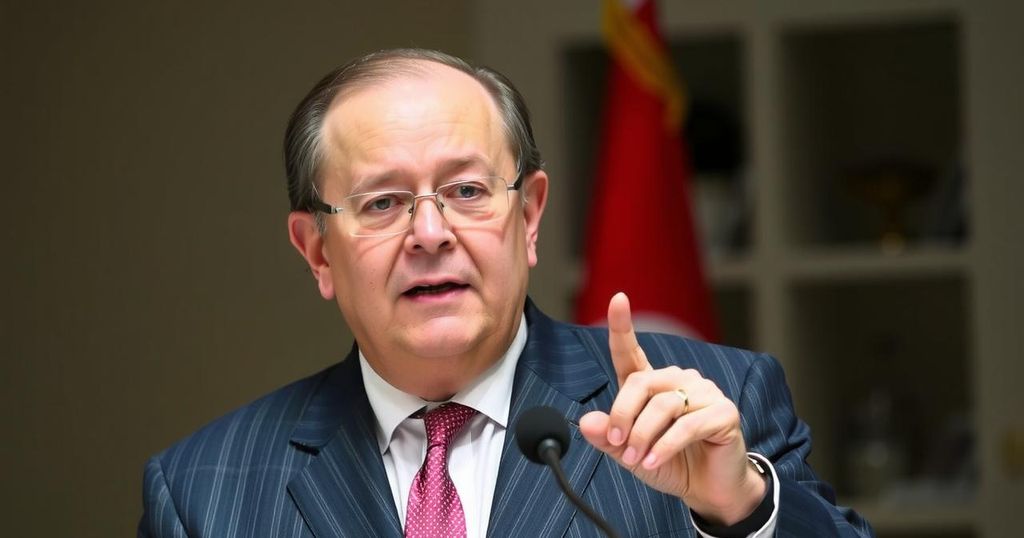Joseph Aoun Elected President of Lebanon, Ending Two-Year Leadership Void

Joseph Aoun was elected as president of Lebanon on January 9, 2023, marking the end of a two-year presidential vacuum. His election comes amid ongoing economic and financial crises stemming from a 2019 collapse and exacerbated by global events. Despite potential international support, the country faces significant challenges, including political paralysis and regional tensions.
On January 9, Joseph Aoun, a general of the Lebanese Armed Forces, was elected as the President of Lebanon, ending a prolonged presidential vacuum that persisted for over two years. Aoun secured his presidency with 99 votes in the Lebanese parliament, surpassing the requisite two-thirds majority. His election marks a crucial development in Lebanese politics, which has been hindered by fragmented parliamentary dynamics and institutional paralysis since the previous president’s term expired in October 2022.
Lebanon has grappled with significant crises, including an ongoing economic and financial debacle that has roots in the 2019 financial collapse and subsequent default on external debts. Consequently, the economic situation worsened due to various shocks, notably the COVID-19 pandemic and the ramifications of the war in Ukraine on global commodity prices. This deterioration has severely hindered essential reforms needed for the country to secure financial assistance from the International Monetary Fund (IMF), as negotiated in the 2022 staff agreement. Nevertheless, in the wake of Aoun’s election, international allies such as Saudi Arabia have expressed readiness to support Lebanon.
In addition to the internal strife, Lebanon faces external pressures, particularly from the ongoing tensions between Israel and Hezbollah. Recent conflicts have inflicted serious economic damages, with the World Bank estimating losses at approximately USD 8.5 billion, alongside notable casualties and displacements. Thus, maintaining the ceasefire agreement between Hezbollah and Israel is paramount for stability. While breaches have been alleged, the ceasefire continues to hold for now.
While the election of President Aoun offers a glimmer of hope for Lebanon, multiple challenges persist, including entrenched political, financial, and institutional crises. As such, Credendo continues to classify the country’s short-term and medium-to-long-term political risks at a severe level of 7 out of 7, recognizing the magnitude of the road ahead for Lebanon’s new leadership.
Lebanon has faced a political stalemate since the end of Michel Aoun’s presidency in October 2022, leaving key governmental positions unfilled and essential reforms stalled. This period of inaction has contributed to escalating economic degradation, impacting the nation’s financial stability. The recent election of Joseph Aoun signifies an important shift in the country’s political landscape, with implications for governance and international relations. Nonetheless, Lebanon’s volatile geopolitical environment and prevailing economic crises present substantial hurdles for the newly elected president.
The election of Joseph Aoun as Lebanon’s president is a significant milestone in the country’s political journey, potentially paving the way for a resolution to the prolonged leadership vacuum. However, the new administration must confront myriad challenges, from a beleaguered economy to the complex geopolitical landscape surrounding Lebanon. International support may be forthcoming, yet the task ahead remains daunting as Lebanon strives for stability and reform.
Original Source: credendo.com








